► Bentley’s first pure electric car due 2025
► Part of £2.5 billion investment in next decade
► Hybrids of all existing Bentley models by 2023
Going electric is a ‘once in a lifetime opportunity’, according to Bentley chief executive Adrian Hallmark. ‘And we’re going to grasp it with both hands.’
He was speaking in an online press conference as the Bentley board of directors revealed more details about the plan for going fully electric by 2030.
The first fully electric Bentley will be launched in late 2025, and it will be a completely new model – not an electric replacement for a current model.
Then there will be one new BEV a year, until the BEV range is five strong. That will involve electric replacements for the current Bentayga, Continental GT, Continental GT Convertible and Flying Spur. Bentley is not saying what order that will happen in.
There will be a transition, so by 2024 there will be a hybrid option on all the current models (Bentayga and Flying Spur are already there). R&D chief Matthias Rabe said he could not confirm that a V8 PHEV would be replacing the non-hybrid V8 and V12. ‘PHEV in future will be much more powerful and more fun to drive,’ he said.
In 2026 (after the first EV arrives in 2025) all Bentleys will be PHEV or BEV. And by 2030, no more combustion engines.
Rabe called it ‘Our biggest product offensive ever’ and stressed that all these cars would be designed and developed in Crewe. Manufacturing chief Peter Bosch added that the VW Group – and Audi in particular – would be working closely with Bentley. ‘This is the most innovative automotive group you can imagine. Together we are defining the future of electric high-performance platforms.’
Speaking about the first BEV, Rabe said: ‘Fully electric will be fun, sports, very fast – acceleration will be faster than today. It will be a large car, a sporty car.’
Sales and marketing chief Alain Favey said that there was strong demand from Bentley customers for electric cars – many expected their next car, or next but one, to be fully electric.
‘For any customer buying a new Bentley, it should remain an extraordinary event,’ said Favey. ‘A new generation is very concerned about global warming, and only buying brands that are genuinely committed to sustainability. Our electric Bentleys will remain true Bentleys. We want to make sure our customers have a truly luxurious experience.’
He added: ‘Range is not necessarily the most important thing – speed of charging is probably the most important.’
The £2.5bn tranformation project will be self-funding, thanks to two years of record sales.
The dream factory
The company is investing in what it rather fancily calls the ‘Bentley Dream Factory’, converting the old world war two era Crewe campus into a highly sustainable centre for modern luxury cars, allowing a high degree of personalisation. The strategy is claimed to secure the roles of 4000 staff in Cheshire.
Crewe has already revealed there will be no ICE-powered models in its range in a decade. Plug-in hybrid (PHEV) variants of the new Bentayga and Flying Spur are the first stepping stones towards full electrification and the first battery electric vehicle (BEV) will appear in 2025, with all models having some form of electrification the year after. The biggest news? By 2030, there’ll be no combustion engines at all in any Bentley-badged vehicle.
It might sound revolutionary, but this was all largely expected from Crewe, and fits with the VW Group and UK government’s plans for electrification. No W12 or V8 in 2030 sounds shocking to Bentley traditionalists, but it’s likely to coincide with an accelerated ban on new ICE-powered vehicles.
Beyond100: Bentley’s road map to electrification
It’s not the first time Bentley has spoken about its plans for electrification, as brand CEO Adrian Hallmark has previously detailed its ‘Beyond100’ plan at the unveil of the facelifted Bentayga.
‘We have a strong plan to bring a battery electric vehicle to market in the next five or six years,’ he said. ‘We are on track. Coronavirus has not changed our strategy: we want to become the most sustainable luxury brand in the world.’
Hallmark argues that battery performance is the biggest stumbling block for top-end luxury manufacturers: he vows a Bentley must be able to cover at least 300 miles at high speeds to live up to its Grand Tourer brand ethos. The question is, will Bentley lose short-term sales to non-luxury brands that can deliver a 300-mile zero-emissions range, for customers who value sustainability above luxury?
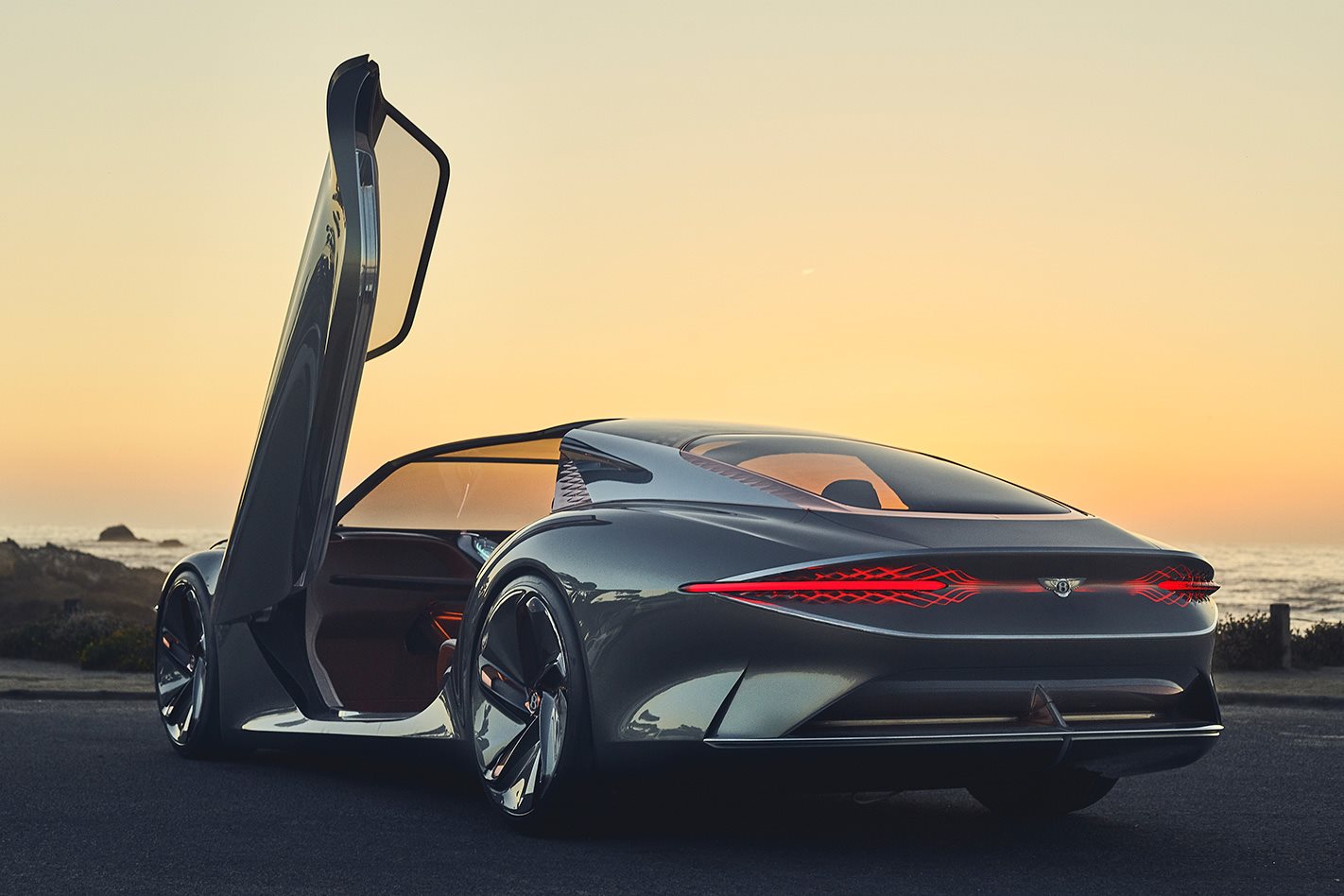
Bentley boys want EV: what’s holding things up?
‘Sustainability and climate change matter to our customers,’ Hallmark admitted. ‘Around 40 per cent of our customers are looking at EVs as their next or next-but-one car. But they won’t give up the things they cherish: fantastic interiors, [luxurious] seats that weigh more than others – they are used to high-quality experiences.’
Bentley showed an electric concept car to mark its centenary in 2019 and now a production EV is signed off, due to launch in 2025. Why is it taking so long when other manufacturers (Tesla, Mercedes-Benz) are already there? It’s not just battery cell performance, the problem is there’s not yet a suitable EV platform within Volkswagen Group, sources suggest.
Audi and Porsche have collaborated on PPE (Premium Platform Electric) for big and luxury vehicles, and although this has an 800-volt electric architecture to enable fast charging and high performance, it appears to require modification to make it fit Bentley’s vision for a sleek and luxurious EV.
More hybrids coming soon
Bentley launched its first hybrid with the Bentayga SUV in 2019. The high-riding five-door wagon uses the same 3.0-litre turbocharged petrol V6 and electric motor combination as the Porsche Cayenne eHybrid (Porsche is also part of the Volkswagen Group).
The Mk1 Bentayga hybrid emits 75g/km – no word on how that will improve with the facelifted version, which has only been shown as a V8 model. The revised Bentayga hybrid will be on UK sale this year, but the 12-cylinder Speed model is being dropped from UK and European price lists.
Bentley is expected to put the hybrid drivetrain into all other models – Flying Spur sedan, Continental GT coupe and GTC convertible – as it makes good on a promise to offer petrol/electric versions of every model within the next three years, Coronavirus-related delays permitting.
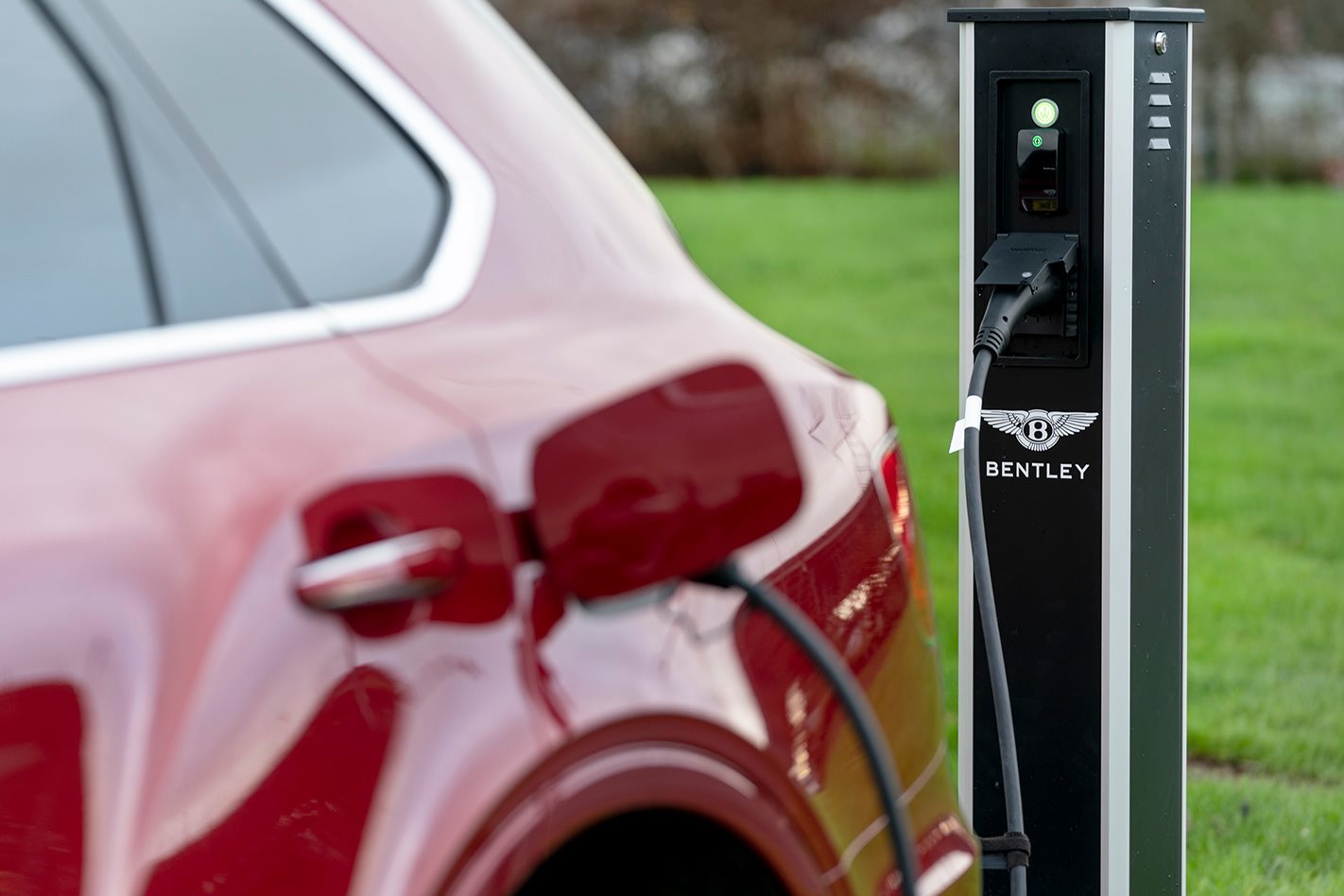
The Mulsanne super luxury limousine, the epitome of Bentley luxury and a rival for the Rolls Royce Phantom, will not be a part of that future however. Production has ceased with it likely to be be replaced by a bigger, more luxurious version of the Bentayga SUV. More on that in a moment.
What about the electric Bentleys?
As for what an electric Bentley will look like, does the EXP 100 GT concept car gives a strong hint? This 5.8m long, luxurious coupe has a theoretical electric touring range of 640km and can accelerate from 0-100km/h in 2.5 seconds thanks to solid-state batteries and electric motors in all four corners. Theoretically.
But such a bodystyle is unlikely to be the first Bentley EV – a coupe wouldn’t sell as well as a crossover or SUV. And while the technology for a luxurious electric Bentley currently doesn’t exist, CEO Hallmark (below) vows it will come.
‘With the known roadmap for battery power density improvement, we will be able to build a proper [electric] Bentley by 2025-26.’
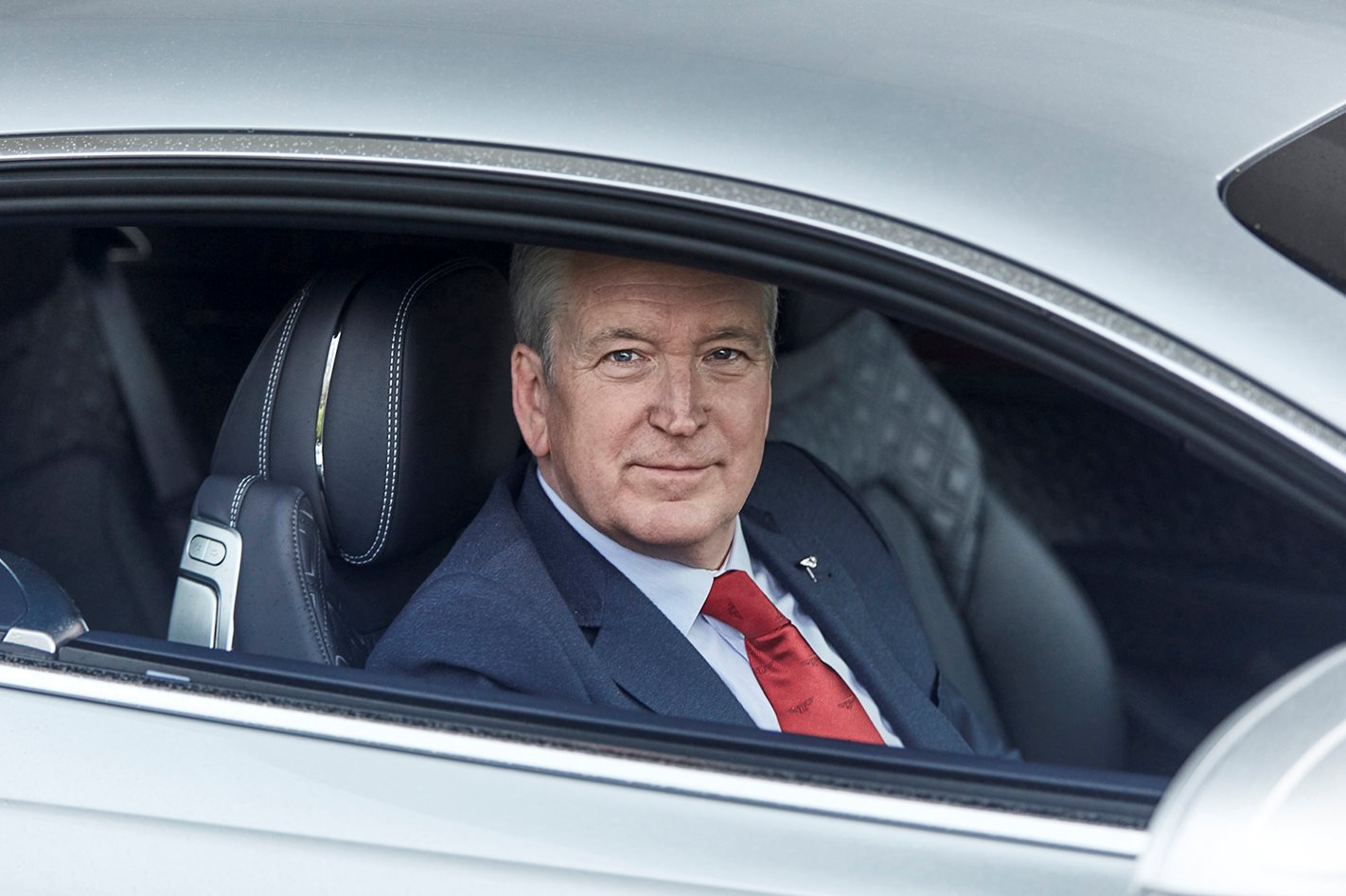
‘In five to ten years,’ says Hallmark, solid-state technology will allow a thirty percent improvement in electric performance. ‘So, thirty percent lighter… Or, same weight and thirty percent more range.’
So, what constitutes a ‘proper” electric Bentley? Certainly not something that looks like a BMW i3 or a Hyundai Ioniq, says Hallmark.
‘We don’t want to build small cars, we want to build Bentleys. We want to build a Bentley that’s got a credible driving range because we are the definitive grand tourer (GT). And a hundred miles isn’t a grand tourer.’
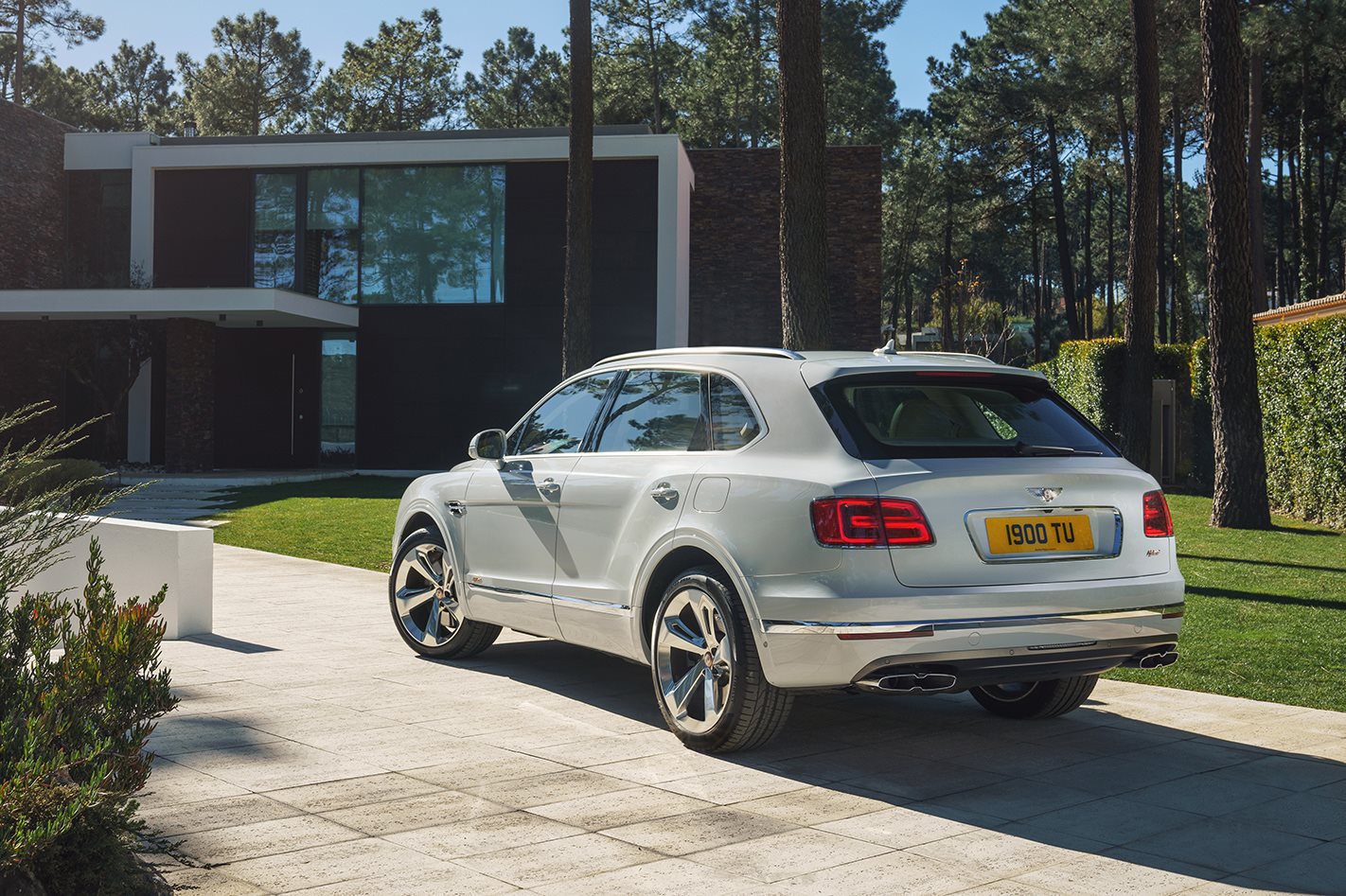
A good range for Bentley ‘has got to be 300 miles minimum [500km],’ says Hallmark, and it will look, feel and drive like a Bentley. It will have ‘the right wheelbase, the right number of occupants, the right overall length, the right height the right shape, the right comfort, refinement and quality’.
The EXP100 GT’s use of a coupe body to preview Bentley’s first electric car was deliberate, says Hallmark. ‘Aero has a much bigger effect on battery performance than it does on conventional [internal combustion] engine performance.’
He said, by comparison, packing a Bentayga SUV full of batteries might yield ‘quite a big battery … [but] you could get less than 320km range’.
Hallmark says Bentley’s plans for hybridisation and electrification are all part of the brand’s stated goal of being the first Volkswagen Group member to achieve full carbon-neutral status from factory to showroom floor.
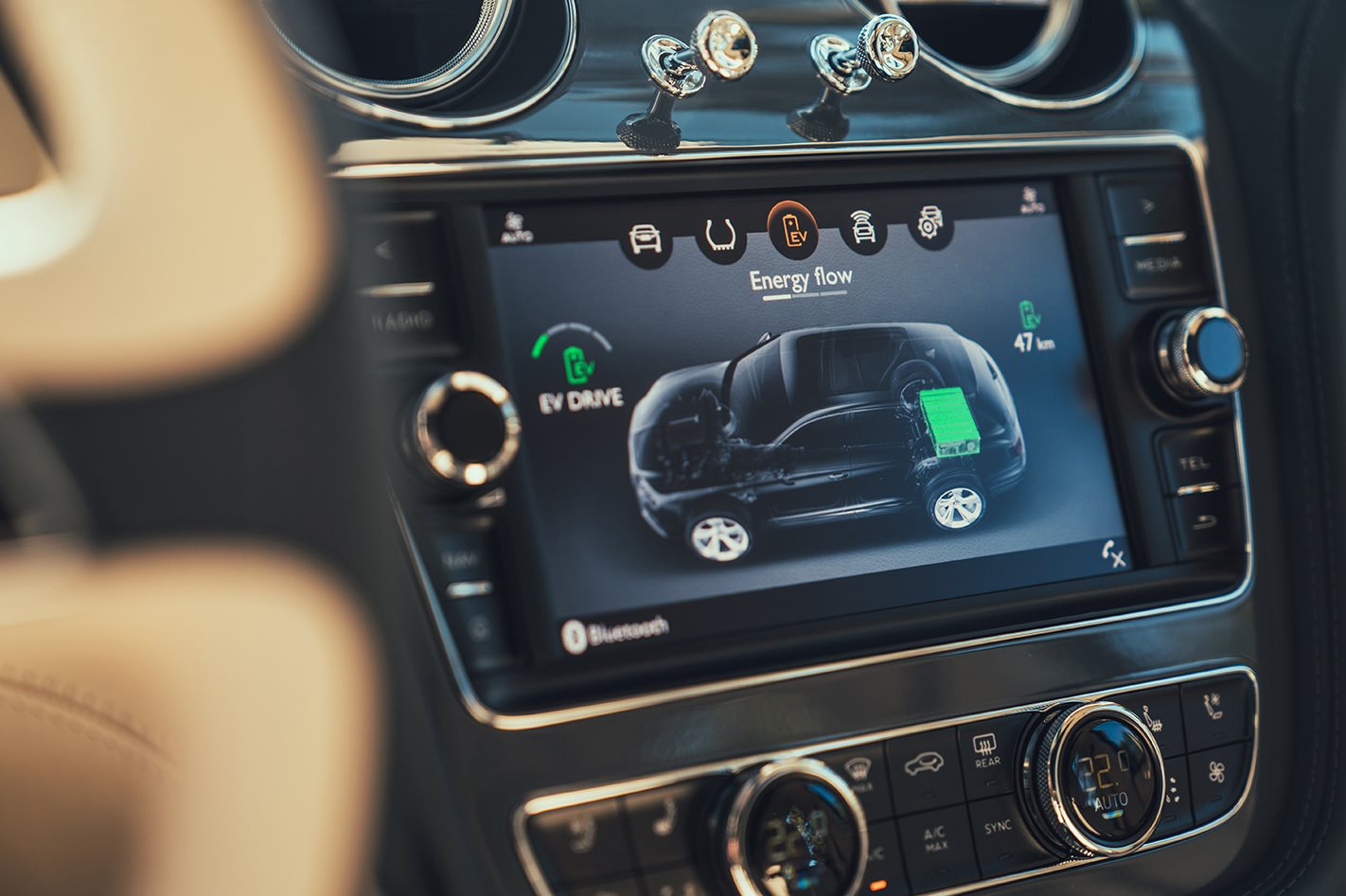
‘We want to be the first in the Group, and the first in the luxury sector.’
Hallmark says Bentley is ideally placed to achieve that because it is small – compared to other VW Group brands – and therefore doesn’t use a lot of resources to begin with.
‘So for us to de-carbonise, for us to make everything transparent from an operational or industrial perspective, is a way smaller challenge that a two, five or ten-million-car company.
‘We’ve already got the biggest solar farm – car part farm – in the country out the back, and they are already carbon neutral for manufacturing operations. We’ve already taken that step in October.
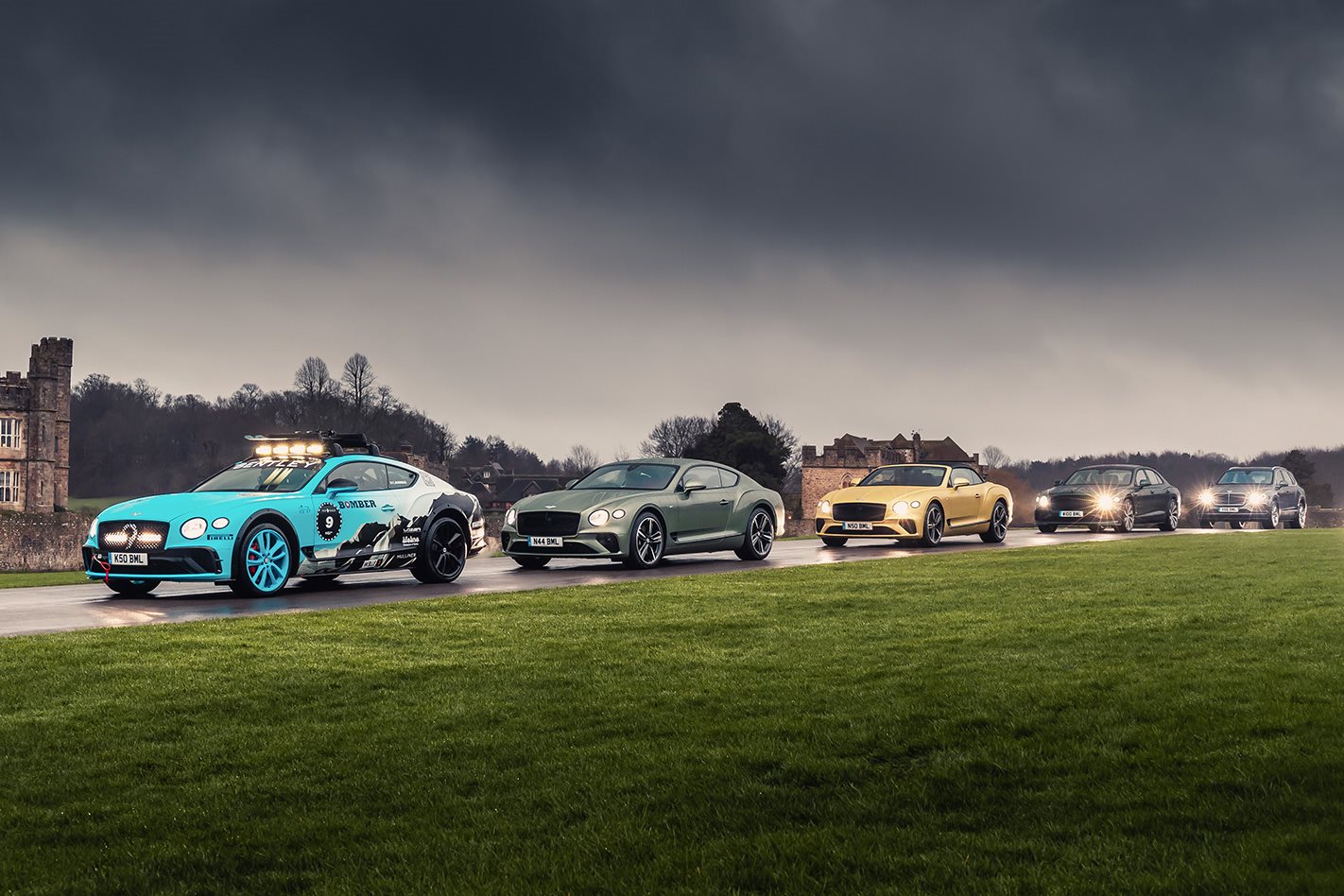
‘We can see a roadmap … to de-carbonise the factory, to de-carbonise the products, and then to even to the final step of de-carbonising the supply chain. So, we don’t need the [VW] Group’s technology to do a lot apart from some of the vehicle technologies. And the main one is battery technology.’
Electrification is the next big step for all brands, and Bentley is well placed to take the lead – providing its Volkswagen Group owners let it.
This article originally appeared on whichcar.com.au, but has been updated